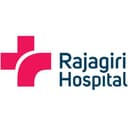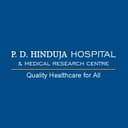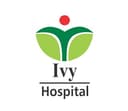Diploma Course in Anaesthesia
OR
Prepared by Docthub Courses Team ∣
Last updated on 13 Aug 2024
Overview
The Diploma Course in Anesthesia is a specialized program designed to train healthcare professionals in the principles and practice of anesthesia.
A diploma course in anesthesia in India covers a comprehensive range of topics, including the administration of anesthesia, patient monitoring, pain management, and emergency responses during surgical procedures.
A diploma in Anesthesia after 12th provides individuals with the knowledge and skills necessary to work effectively in anesthesia departments of hospitals, surgical centers, and other healthcare settings.

Table of Content
Highlights
| Details | Diploma Course in Anesthesia |
| Level | Graduation Degree |
| Duration | 2-3 Years |
| Exam Type | Written/Practical |
| Course Fees | INR 40,000-5,00,000 |
| Min. Qualification Requirement | 10+2 or equivalent from a recognized board |
| Average Salary | INR 2-8 lakhs |
| Selection Process | Entrance Exam/Merit-based |
| Min. Aggregate Score | 50% or more in 10+2 in science stream |
Eligibility
Diploma in anesthesia eligibility criteria explains that Candidates who are interested in pursuing the Diploma Course in Anesthesia should typically have completed their Bachelor of Medicine and Bachelor of Surgery (MBBS) or an equivalent medical degree from a recognized institution.
Fees
The Diploma in Anesthesia course fees can vary significantly depending on the institution, ranging from INR 40,000 to INR 5 lakh for the entire course.
Who Should Do This Course?
This course is ideally suited for medical graduates who are passionate about perioperative care and have a keen interest in anesthesia.
It is also suitable for healthcare professionals such as nurses, physician assistants, and paramedics who wish to specialize in anesthesia and expand their career opportunities in it and critical care.
Why Study This Course?
Studying the Diploma Course in Anesthesia offers several compelling reasons:
- Gain specialized knowledge and skills in anesthesia techniques, patient assessment, and perioperative care.
- Enhance career prospects by becoming proficient in a critical area of healthcare.
- Anesthesia professionals are in high demand in hospitals, surgical centers, and other healthcare facilities.
- Make a meaningful difference in patients' lives by ensuring their comfort and safety during surgical procedures.
- Anesthesia is a constantly evolving field with opportunities for continuous learning and professional growth.
Admission Process
The Diploma Course in Anesthesia Admission Process in India can vary between institutions, but it generally follows a set of common steps:
Eligibility Check:
Candidates can pursue a Diploma Course in Anaesthesia after 12th or equivalent study from a recognized board.
Application Submission:
Complete and submit the application form provided by the institution. The application form may be available online on the official website of the institution or can be obtained in person.
Documentation:
Prepare and submit the required documents, which may include:
- High school transcripts and certificates.
- Proof of identity.
- Passport-sized photographs.
- Completed application form.
- Any other documents specified by the institution.
Entrance Exam (if applicable):
Some institutions may require applicants to take an entrance exam to assess their readiness for the program. The format and content of the entrance exam can vary.
Interview (if applicable):
In some cases, applicants may be required to participate in an interview. The interview may assess your motivation, communication skills, and suitability.
Admission Offer:
If selected, you will receive an offer from the institution. The offer letter will provide details about the program, including the start date, course duration, and any other relevant information.
Entrance Exam
There is usually no requirement for a separate entrance exam for a Diploma in Anesthesia. Admission to the program is generally based on merit, with a minimum score requirement of 50% or above in the 10+2 examination with science subjects (Biology, Physics, and Chemistry).
Syllabus
Diploma in Anesthesia syllabus covers various subjects such as:
| Year/Semester | Courses |
Semester 1 Applied Human Anatomy and Physiology Introduction to Anaesthesia Physiology of Anesthesia Biochemistry Pharmacology of Anaesthesia Post Anesthesia Care Semester 2 General Anesthesia Techniques Regional Anesthesia Techniques Fluid and Electrolyte Management Pain Management Critical Care Medicine Introduction to Research Methodology Semester 3 Obstetric Anesthesia Pediatric Anesthesia Neurosurgical Anesthesia Cardiac Anesthesia Thoracic Anesthesia Anesthesia for Orthopedic Surgery Semester 4 Pre-anesthetic Assessment Anesthesia for ENT Surgery Anesthesia for Ophthalmic Surgery Anesthesia for Plastic Surgery Anesthesia for Urological Surgery Anesthesia for Laparoscopic Surgery Semester 5 Complications in Anesthesia Medical Ethics and Jurisprudence Communication Skills Healthcare Management Systems Project work Semester 6 Clinical postings and externships |
Top Private Colleges
- Christian Medical College, Vellore
- Lokmanya Tilak Municipal Medical College, Mumbai
- Amrita Institute of Medical Sciences and Research Centre, Kochi
- St. John's Medical College, Bangalore
- Manipal Academy of Higher Education, Manipal
- Symbiosis International (Deemed University), Pune
- SRM Institute of Science and Technology, Chennai
- Amity University Maharashtra, Mumbai
- Shiv Nadar University, Noida
- Jagadguru Shri Adi Shankara College of Applied Medical Sciences & Research Centre, Bangalore
Top Government Colleges
- Maulana Azad Medical College, New Delhi
- Government Medical College, Chandigarh
- Seth GS Medical College, Mumbai
- Madras Medical College, Chennai
- King George's Medical College, Lucknow
- Institute of Post Graduate Medical Education and Research, Kolkata
- Bangalore Medical College and Research Institute, Bangalore
- Grant Medical College and Sir JJ Group of Hospitals, Mumbai
- Sri Ramachandra Medical College and Research Institute, Chennai
- All India Institute of Medical Sciences, New Delhi
Scope
Graduates of the Diploma Course in Anesthesia can pursue various career paths in both public and private healthcare sectors. They can work as:
- Anesthesia Technicians
- Anesthesia Assistants
- Anesthesia Nurses
- Clinical Instructors
- Critical Care Nurses
- Perioperative Nurses
Further Study Options
After completing the diploma course, individuals may choose to further their education and skills by pursuing advanced degrees such as:
- Master of Science in Anesthesia (MSc)
- Doctor of Medicine in Anesthesiology (MD)
- Postgraduate Diploma in Critical Care Medicine
- Fellowship Programs in Subspecialties of Anesthesia (e.g., Cardiac Anesthesia, Pediatric Anesthesia)
Career Opportunities After This Course
Graduates of the Diploma Course in Anesthesia can explore a wide range of career opportunities, including:
- Anesthesia Technician/Technologist
- Anesthesia Nurse
- Clinical Instructor
- Critical Care Nurse
- Perioperative Nurse
Salary
The starting Diploma in Anesthesia Salary can vary between INR 2 lakh to INR 8 lakh per year. Several factors can influence the salary, including experience, skills, and the type of healthcare facility you work in.
Explore colleges for this course
Quick Go Links

Explore this course by location..
Related Job Roles
Related Job Vacancies
View All 78 Jobs

FAQS
What is a Bachelor of Vocation in Patient Care Management or Nursing?
A Bachelor of Vocation (B.Voc) in Patient Care Management or Nursing is a specialized undergraduate program that focuses on developing skills and knowledge related to patient care, healthcare management, and nursing practices.
How to get admission in B.Voc. in Patient Care Management or Nursing?
To get admission to B.Voc in Patient Care Management or Nursing, you typically need to have completed high school or an equivalent qualification.
What is the duration of the Bachelor of Vocation in Patient Care Management or Nursing course?
The duration of the Bachelor of Vocation in Patient Care Management or Nursing course is usually three years, but it can vary depending on the specific institution and the structure of the program.
Which skills are required for a Bachelor Vocation (B.Voc) in Patient Care Management or Nursing?
Skills required for a B.Voc in Patient Care Management or Nursing include strong communication skills, empathy, critical thinking, problem-solving abilities, attention to detail, ability to work in a team, and a compassionate attitude toward patients.
What is the scope of B.Voc in patient care management or nursing?
The scope of B.Voc in patient care management or nursing is promising, as it opens opportunities for employment in hospitals, clinics, nursing homes, community health centers, and various healthcare organizations.
Related Course titles

Qualifications
12th Science PCB
Related Specialty
Anesthesia Technology




